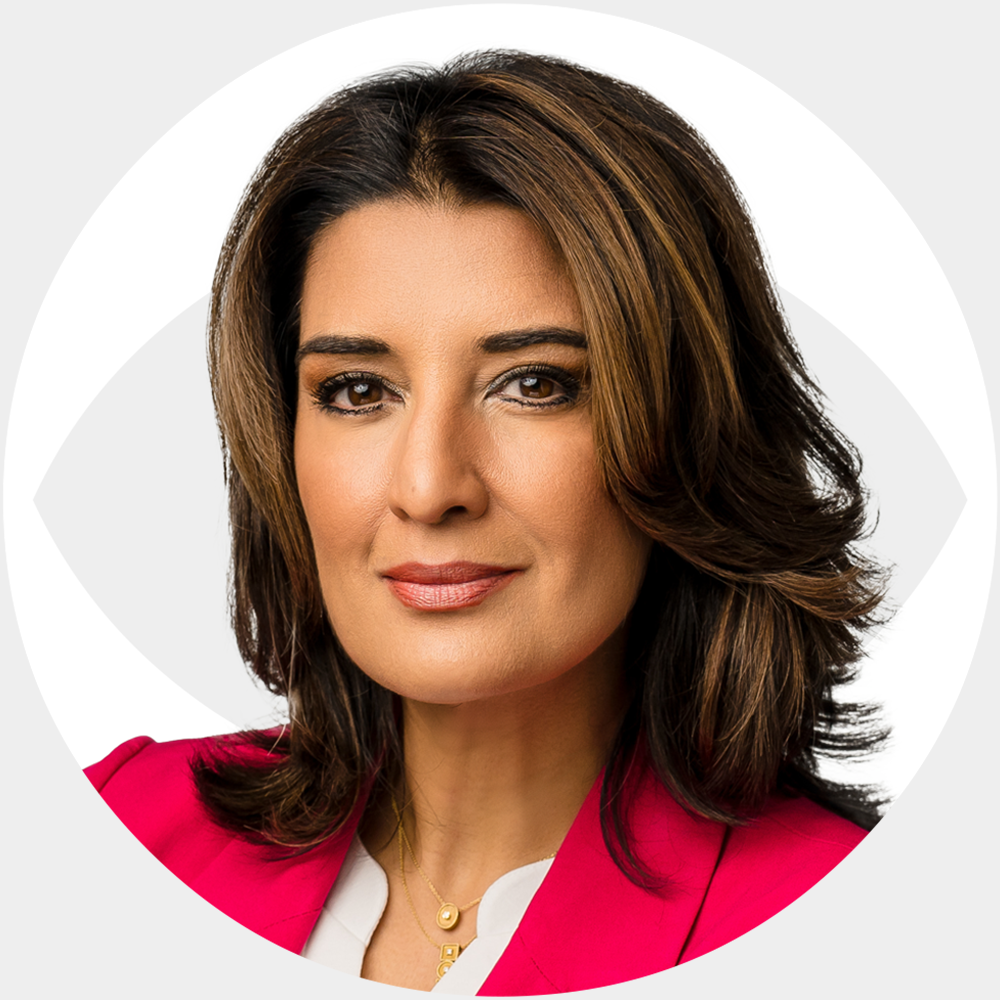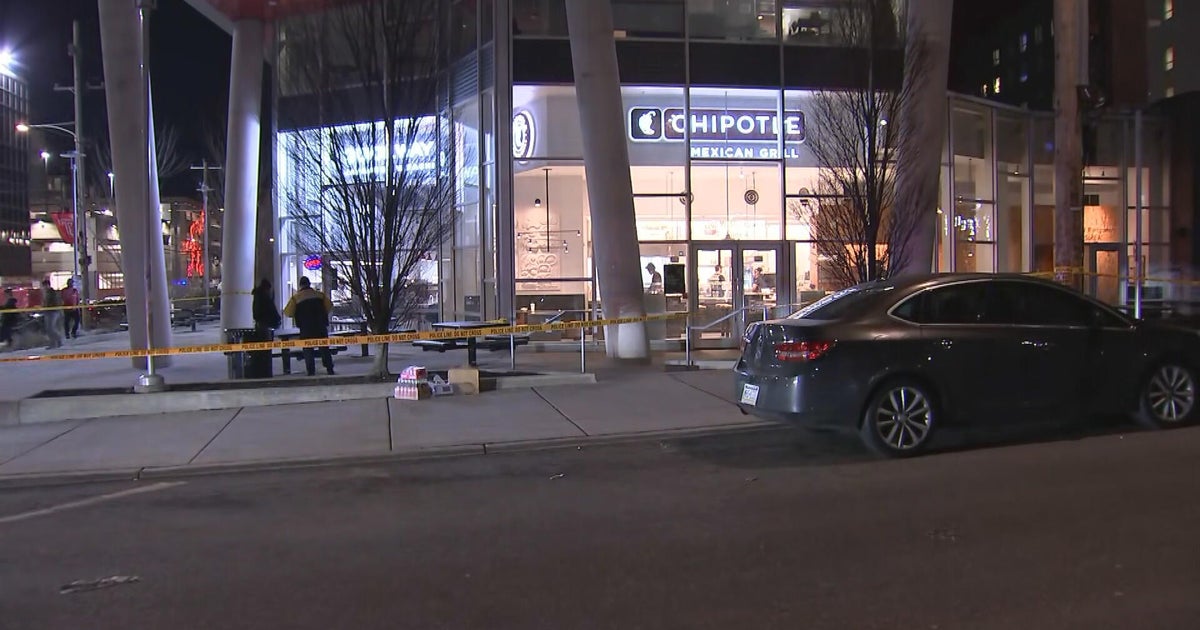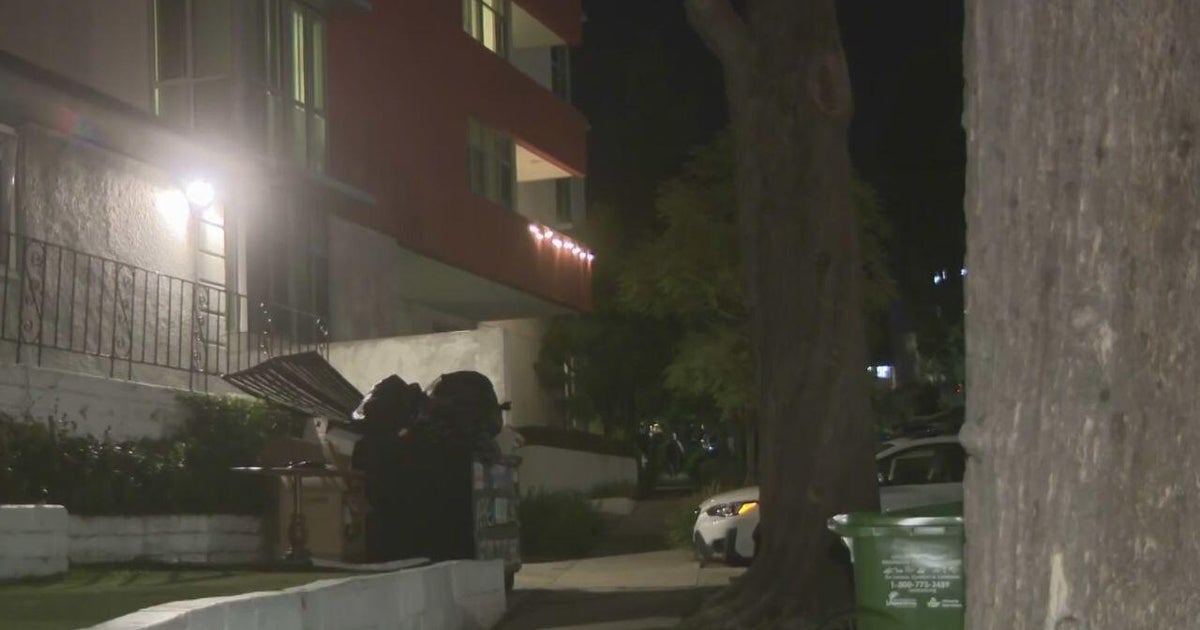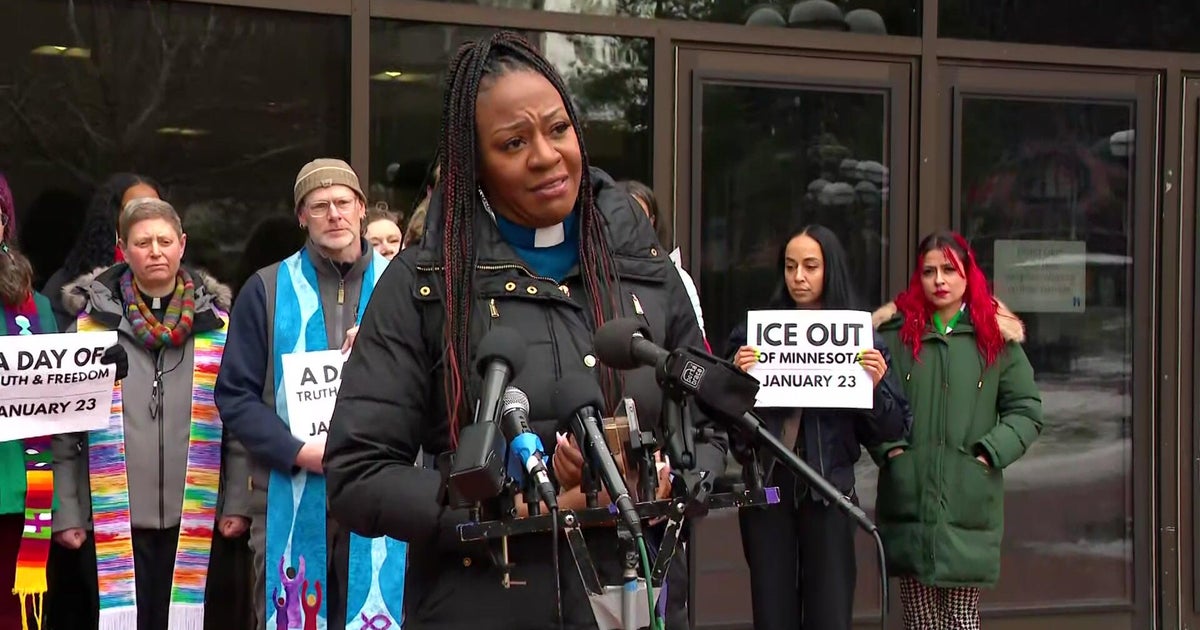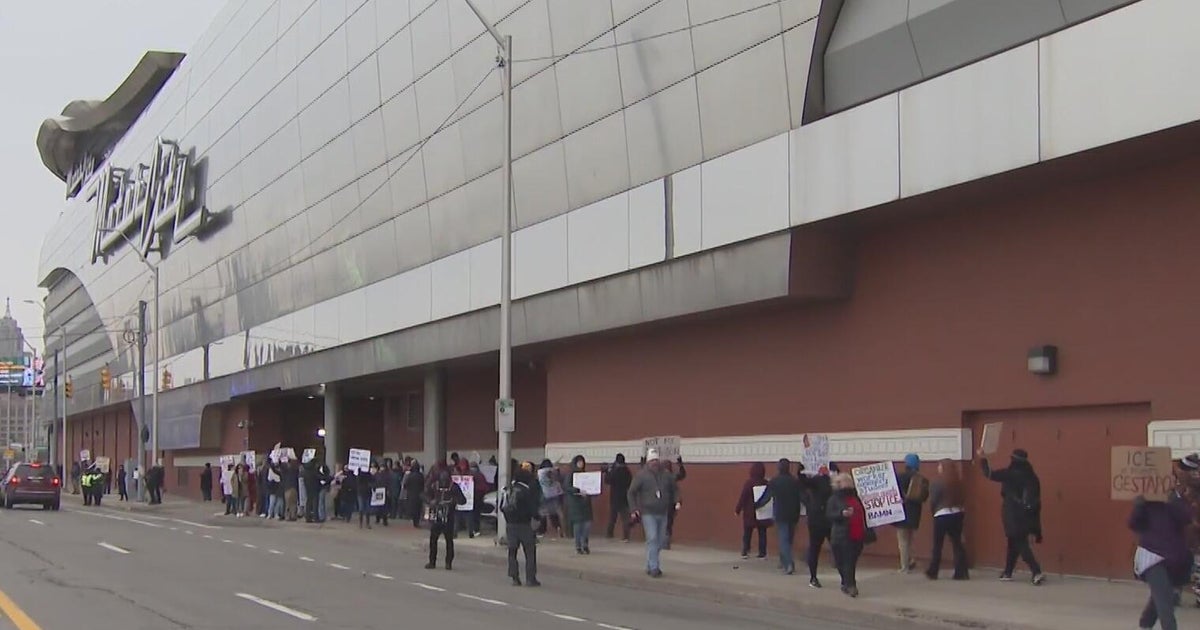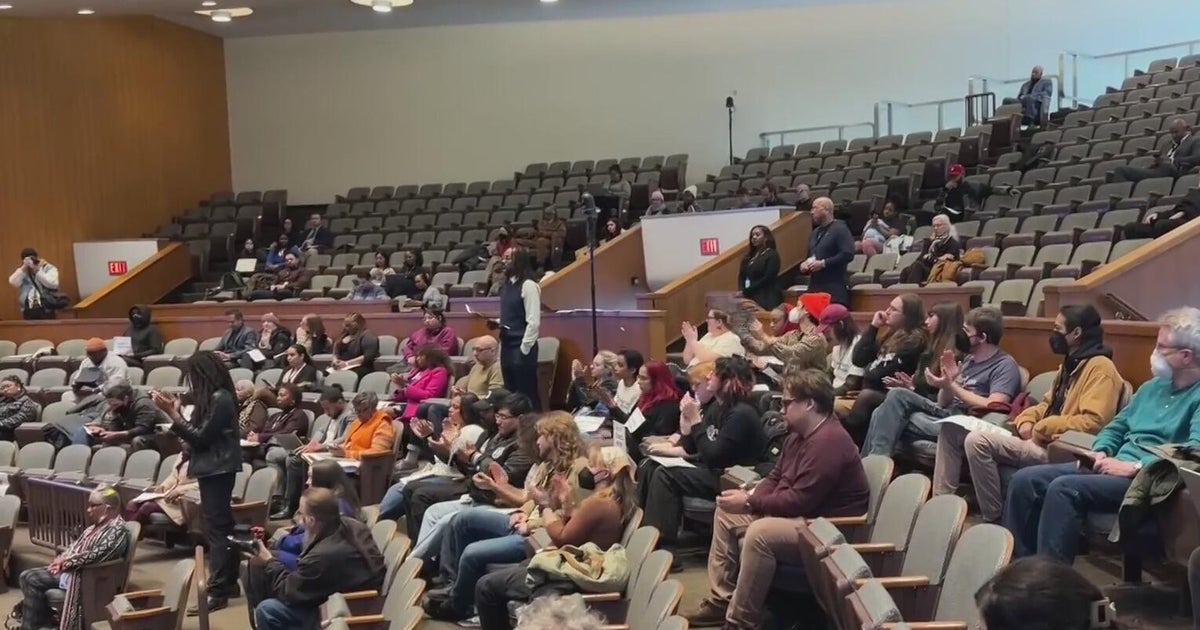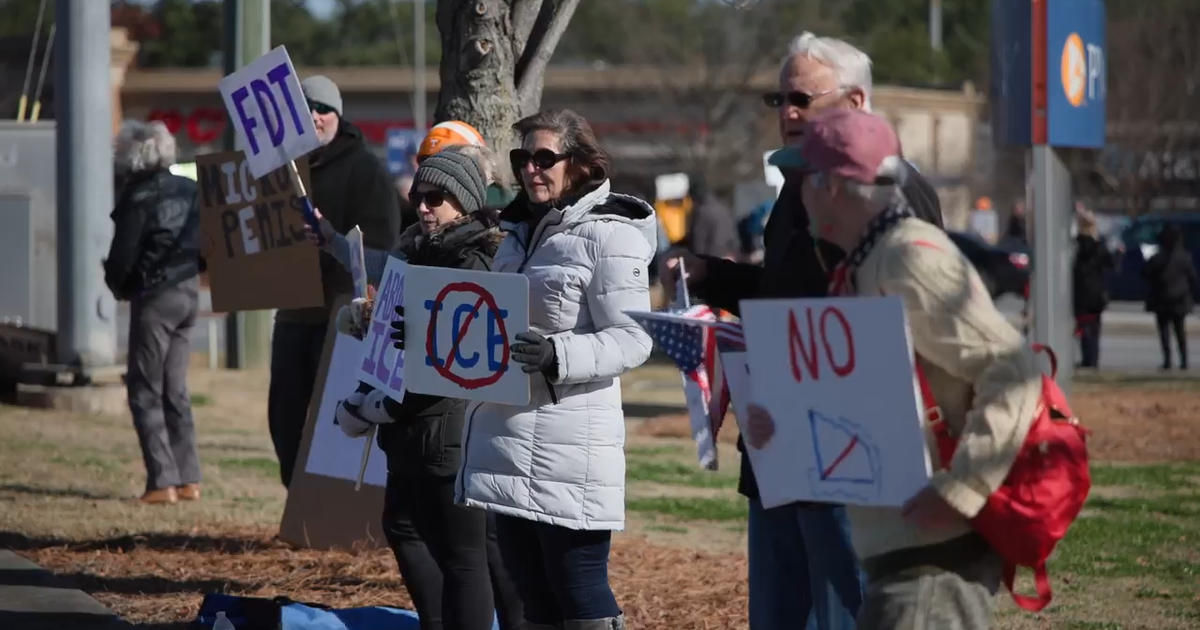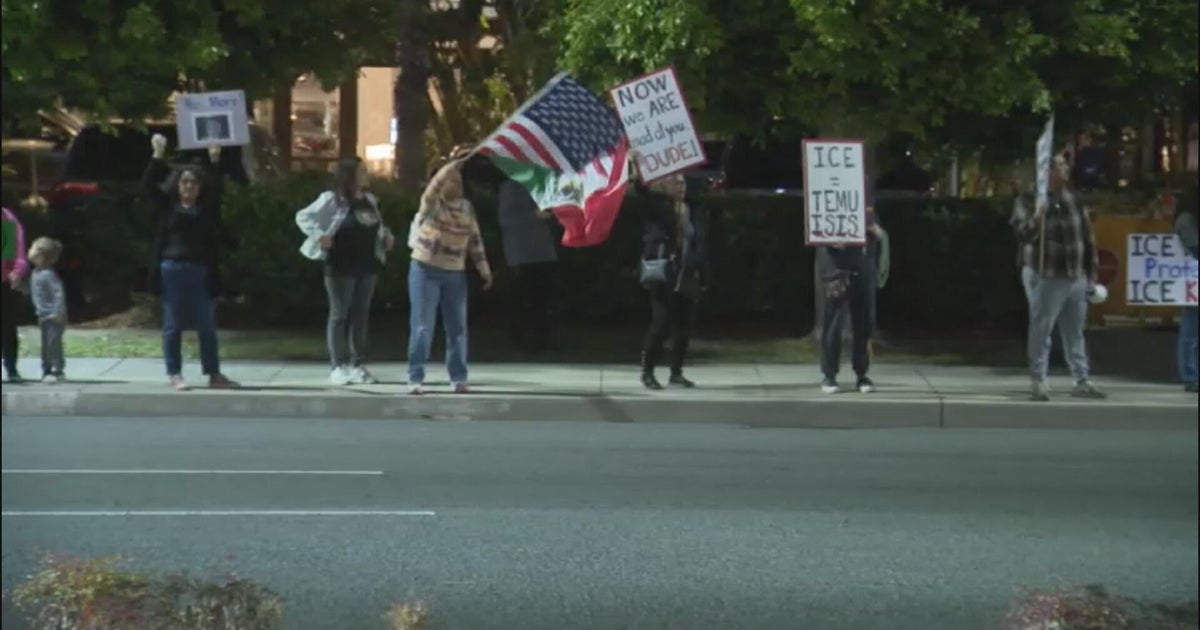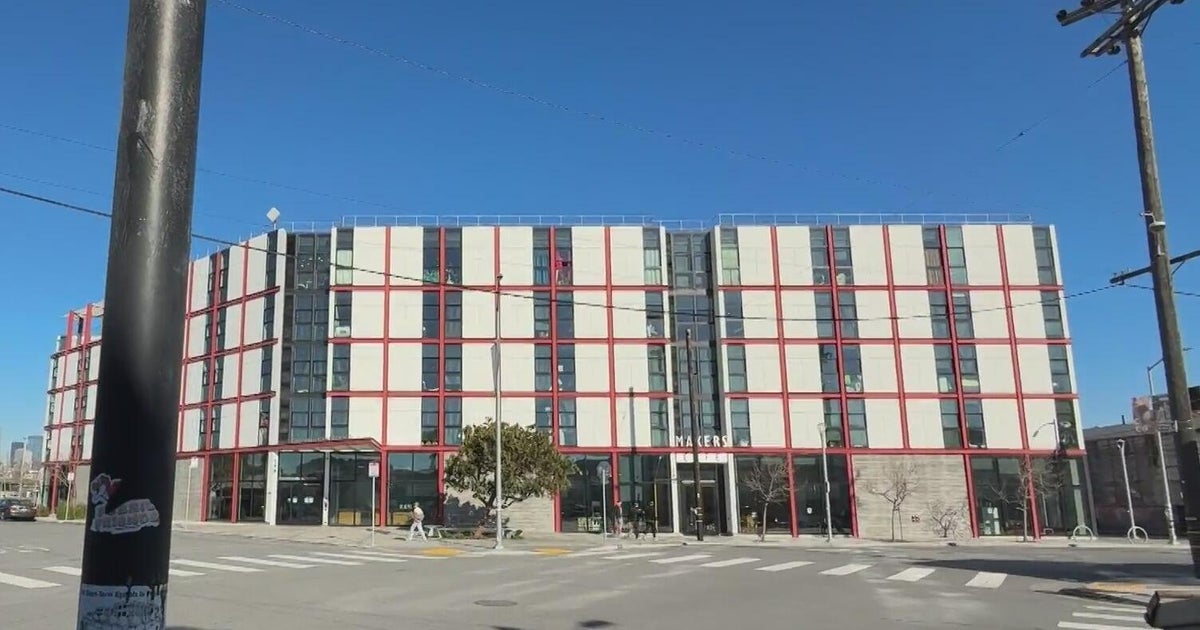Demonstrators in N.Y. call for college campuses to ban masks at protests
NEW YORK — Demonstrators in New York gathered Tuesday to call for college campuses to put a mask ban in place to better protect students during protests.
Just a block from Columbia University, over a 100 pro-Israeli demonstrators came together to urge American colleges to ban face coverings during protests.
"They want to make us feel us unsafe, afraid and targeted simply because of our Jewish identify," one demonstrator said.
This comes after the spring protests at Columbia where some pro-Palestinian demonstrators covered their faces and taunted Jewish students.
"Nobody thinks that the hatred will go away when we get rid of the masks, but we realize that if we get rid of the masks, you will include some consequences," said Shai Davidi, assistant professor of management at Columbia Business School.
Mayor Eric Adams has said he would support a face mask ban in the city if it's not related to health or religion, but some Columbia students understand the need for them.
"Protests are super spreader events. I'm sensitive to those who have preexisting conditions," Columbia student Sam Nhis said.
Nassau County Police stop man wearing mask, discover he's armed with a knife
Just two weeks ago Nassau County put into law a mask ban lawmakers say is designed to protect the public, but it comes with controversy and pushback.
Beth Haroules, a senior staff attorney with the American Civil Liberties Union, said it gives police the power to stop someone, almost like stop-and-frisk in New York City.
"Masks not only protect people's health, but they also permit people to engage in protected First Amendment activity," Haroules said.
On Sunday night, officers in Hicksville stopped an 18-year-old man wearing a mask that covered his entire face except his eyes. Police said officers noticed a bulge on his side and discovered that he had a 14-inch knife on him. The man was arrested and charged with criminal possession of a weapon and obstructing governmental administration, but he was not arraigned on a mask charge.
Haroules said this is a poor example of how the mask ban works, and moreso, there are more downfalls with Nassau County's new law.
"There is the disability discrimination piece ... There is, you know, a health bias here, you know, against people taking whatever measures they feel are necessary," she said.
Experts said there will be exceptions for those with health ailments and religious reasons to cover their face in Nassau County, but if you do have a mask on, the police have the right to question you, and there can be consequences, including jail time and/or a fine.
How law enforcement is preparing for this school year
Former NYPD Deputy Commissioner Richard Esposito tells CBS News New York police have been visiting campuses and speaking with college officials before students head back to school.
"Reminding them about what happened last year at Columbia, where efforts to appease kept police off the campus. The administrators of the college say that they were trying to strike a balance between free speech and safety. Police say they kept them off way too long," Esposito said, adding police are "encouraging different behaviors" this school year.
Esposito said the authority remains with individual schools to call police onto campus.
"Police are trying to encourage the schools to let them on campus early, where they can keep order where they can help strike the balance between free speech and protests and threatening other students," he said. "If you recall last year, there was a lot of hate speech directed at students who were perceived as or were Jewish, and that kind of speech is not under the first amendment. There are certain things that are just not allowed, threatening violence is one of them."
On Monday, Gov. Kathy Hochul also met with leaders from more than 200 colleges and universities, along with public safety experts, about ways to reinforce emergency plans.
"The plans are having police ready, having state police ready, and police understanding how to approach students. And how do you approach people who might be professional protesters who are there to encourage the kind of protest we don't want, where signs are turned into weapons," said Esposito.
The City University of New York, which also saw protests last year, starts its fall semester Wednesday. Columbia and New York University start fall classes the day after Labor Day.
Columbia's president resigned earlier this month, becoming the third Ivy League president to step down after testifying on Capitol Hill about antisemitism on campuses.
